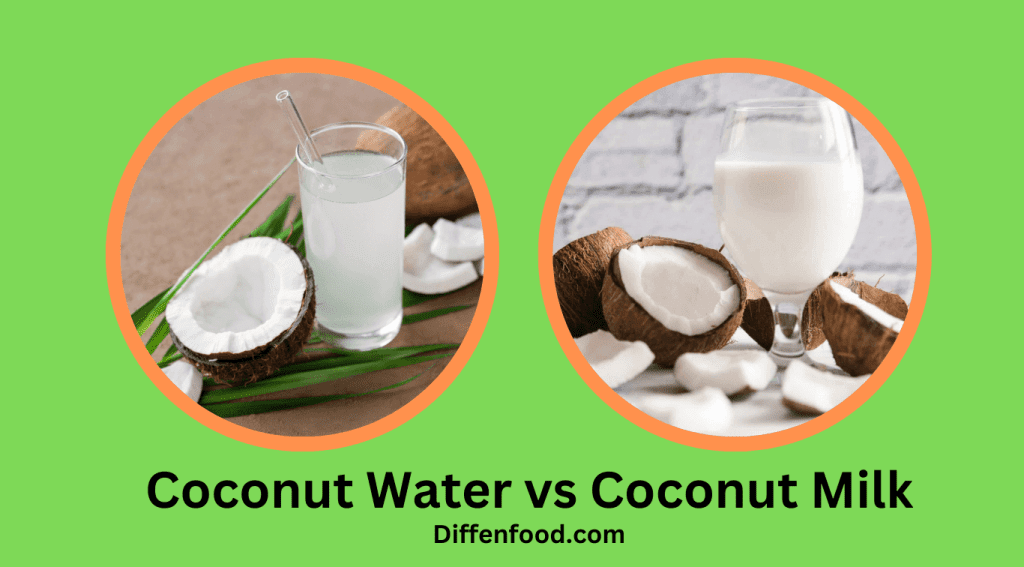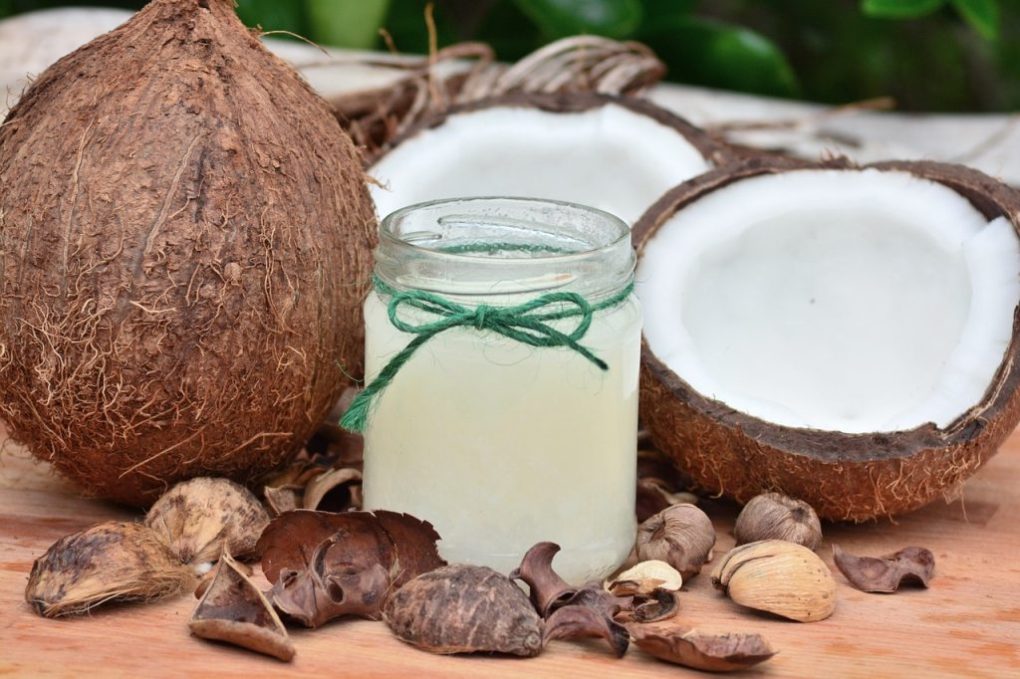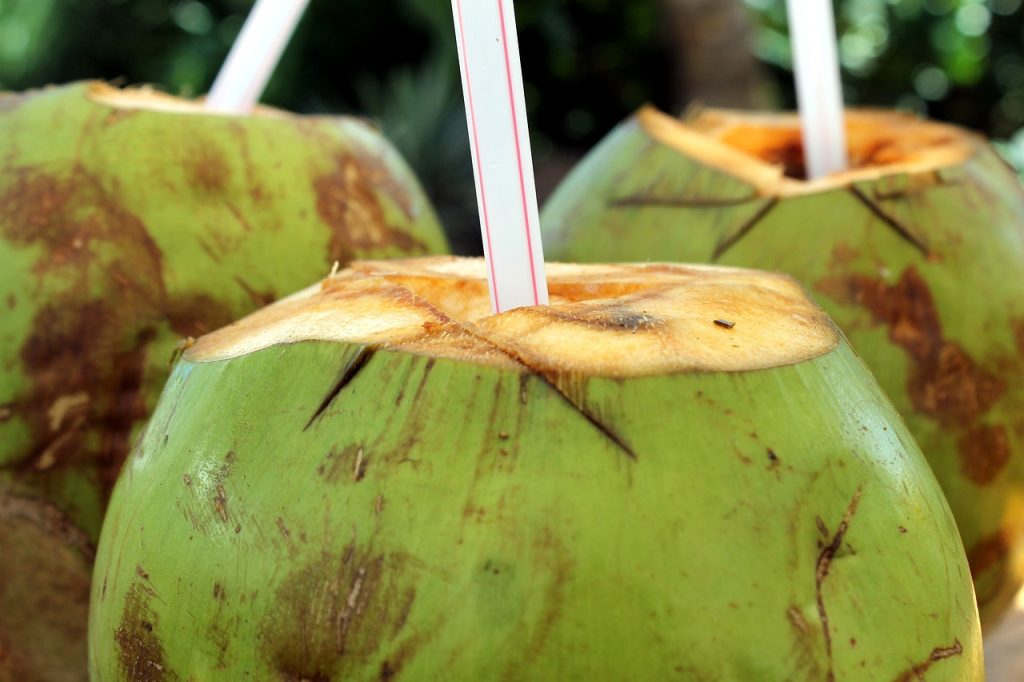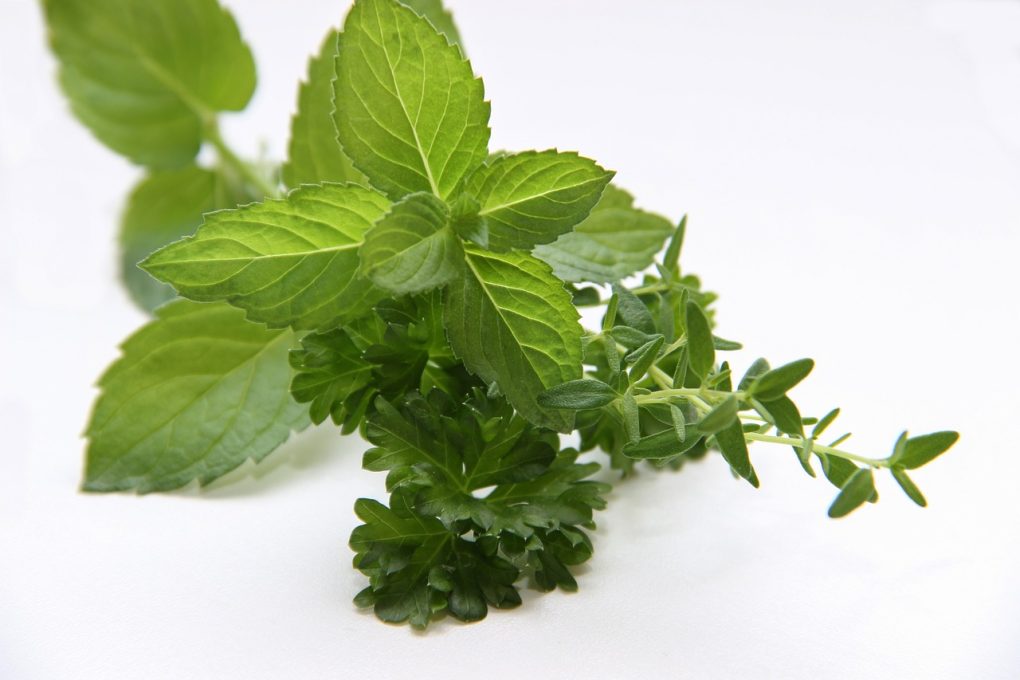
Coconut water and coconut milk are two popular products derived from coconuts. They are differ in nutritional value, flavor, and usage. In this article, we will discuss the differences between coconut water and coconut milk to help you understand the unique characteristics of each product.
What is Coconut Water?
Coconut water is the clear liquid that is found inside young, green coconuts. It is a natural electrolyte and is low in calories, fat, and sugar. Coconut water is often referred to as a “superfood” because it contains potassium, magnesium, and other important minerals that help to maintain proper fluid balance in the body. People commonly drink coconut water as a beverage and use it as a natural sports drink to rehydrate the body and restore minerals lost during exercise.
What is Coconut Milk?
Coconut milk is made by blending the meat of mature coconuts with water. It has a rich, creamy texture and a sweet, nutty flavor. Coconut milk is high in calories and fat but is also a good source of iron, magnesium, and vitamin C. People commonly use it as a cooking and baking ingredient and include it as a vital component in numerous traditional dishes, such as curries, soups, and sauces.
Coconut Water vs Coconut Milk: Main Differences

Nutritional Differences
Coconut water and coconut milk have distinct nutritional profiles. Coconut water is low in calories, fat, and sugar, but high in potassium and other important minerals. It is an excellent source of hydration, especially for athletes or people who engage in high-intensity exercise. On the other hand, coconut milk is high in calories and fat, but also contains several vitamins and minerals, making it a great ingredient for cooking and baking.
Flavor Differences
Coconut water has a refreshing, slightly sweet taste, with a hint of nuttiness. It is often compared to a light and less sweet version of coconut milk. Coconut milk, on the other hand, has a rich, creamy texture, and a sweet, nutty flavor. It is often used as a dairy-free alternative in many recipes to add a rich, creamy texture and coconut flavor.
Coconut Water vs Coconut Milk: Benefits

Coconut water and coconut milk are two popular products derived from coconuts. Both of them offer a range of health benefits due to their unique nutritional content. In this article, we will discuss the benefits of coconut water and coconut milk.
Benefits of Coconut Water
- Hydration: Coconut water is a natural electrolyte and an excellent source of hydration. It contains high levels of potassium and sodium, which help to replenish lost fluids and minerals during exercise or hot weather.
- Low in calories: Coconut water is low in calories, making it an excellent alternative to sugary sports drinks or sodas.
- Regulates blood pressure: Coconut water contains high levels of potassium and magnesium, which can help to regulate blood pressure and reduce the risk of heart disease.
- Promotes digestion: Coconut water contains natural enzymes that can aid digestion and prevent stomach issues such as constipation or bloating.
- Boosts immune system: Coconut water contains lauric acid, which has antibacterial and antiviral properties that can help to boost the immune system.
Benefits of Coconut Milk
- High in nutrients: Coconut milk is high in vitamins and minerals such as iron, magnesium, and vitamin C. These nutrients are essential for maintaining overall health and wellbeing.
- Good for bone health: Coconut milk contains calcium, which is essential for strong bones and teeth.
- Improves digestion: Coconut milk contains lauric acid, which has antimicrobial properties that can help to improve digestion and prevent gut-related issues.
- Good for skin health: Coconut milk is rich in vitamin C and copper, which can help to improve skin health and promote collagen production.
- Dairy-free alternative: Coconut milk is a popular dairy-free alternative to milk, making it an excellent option for people who are lactose intolerant or following a vegan diet.
Comparison of Uses
Coconut water and coconut milk have different uses in the culinary world.People often drink coconut water as a refreshing beverage or use it as a natural sports drink to rehydrate their bodies. Additionally, it can serve as a base for smoothies and juices.
People use coconut milk as a versatile ingredient in numerous dishes, including curries, soups, stews, and sauces, as well as in baking and desserts to provide a creamy texture and coconut flavor.
Conclusion
To sum up, coconut water and coconut milk come from coconuts, but they differ in nutritional value, flavor, and application. Coconut water is low in calories, fat, and sugar, and is an excellent source of hydration, while coconut milk is high in calories and fat, but is also a great source of vitamins and minerals, making it a popular ingredient in cooking and baking. Understanding the differences between these two coconut-based products can help you choose the right one for your needs.





